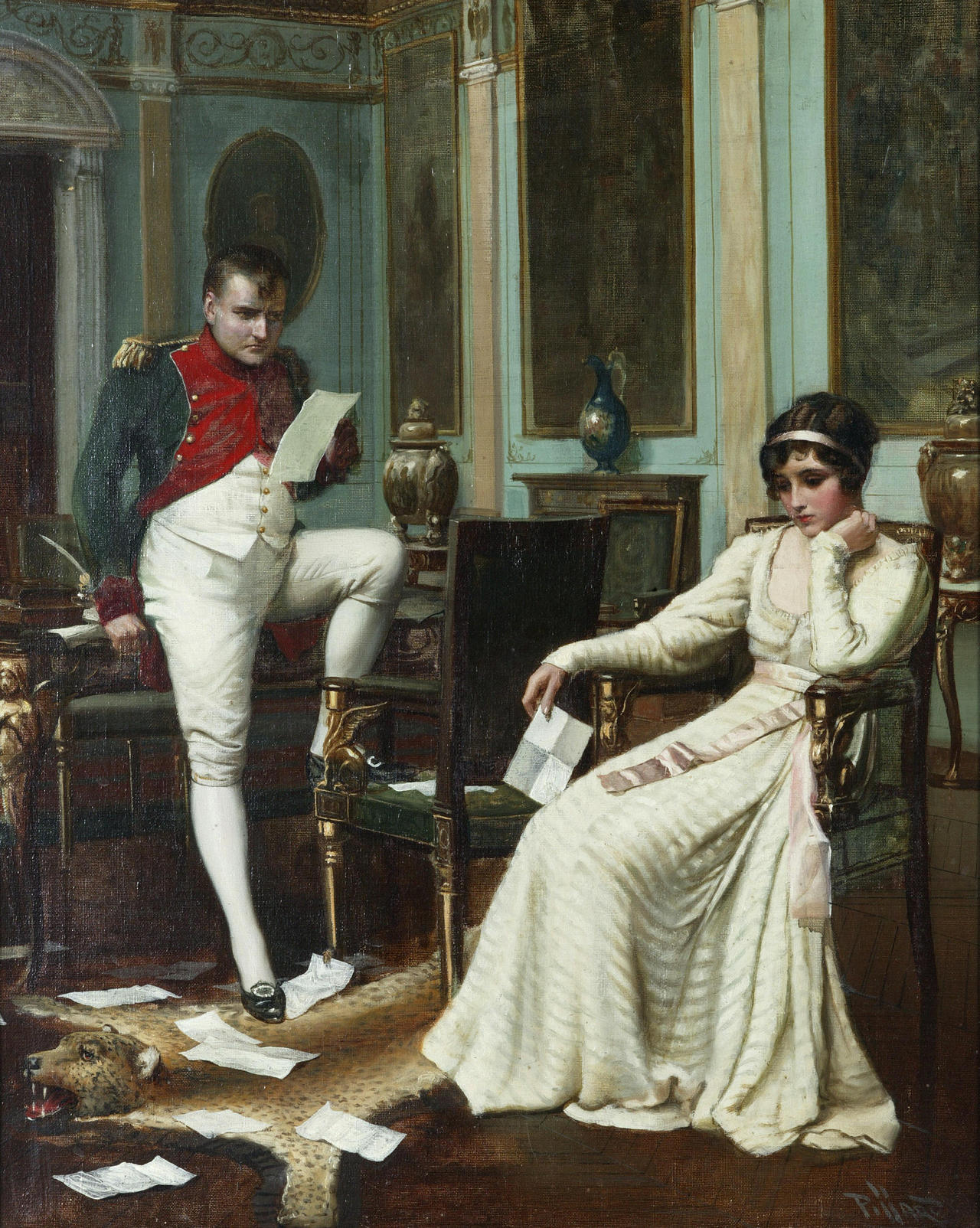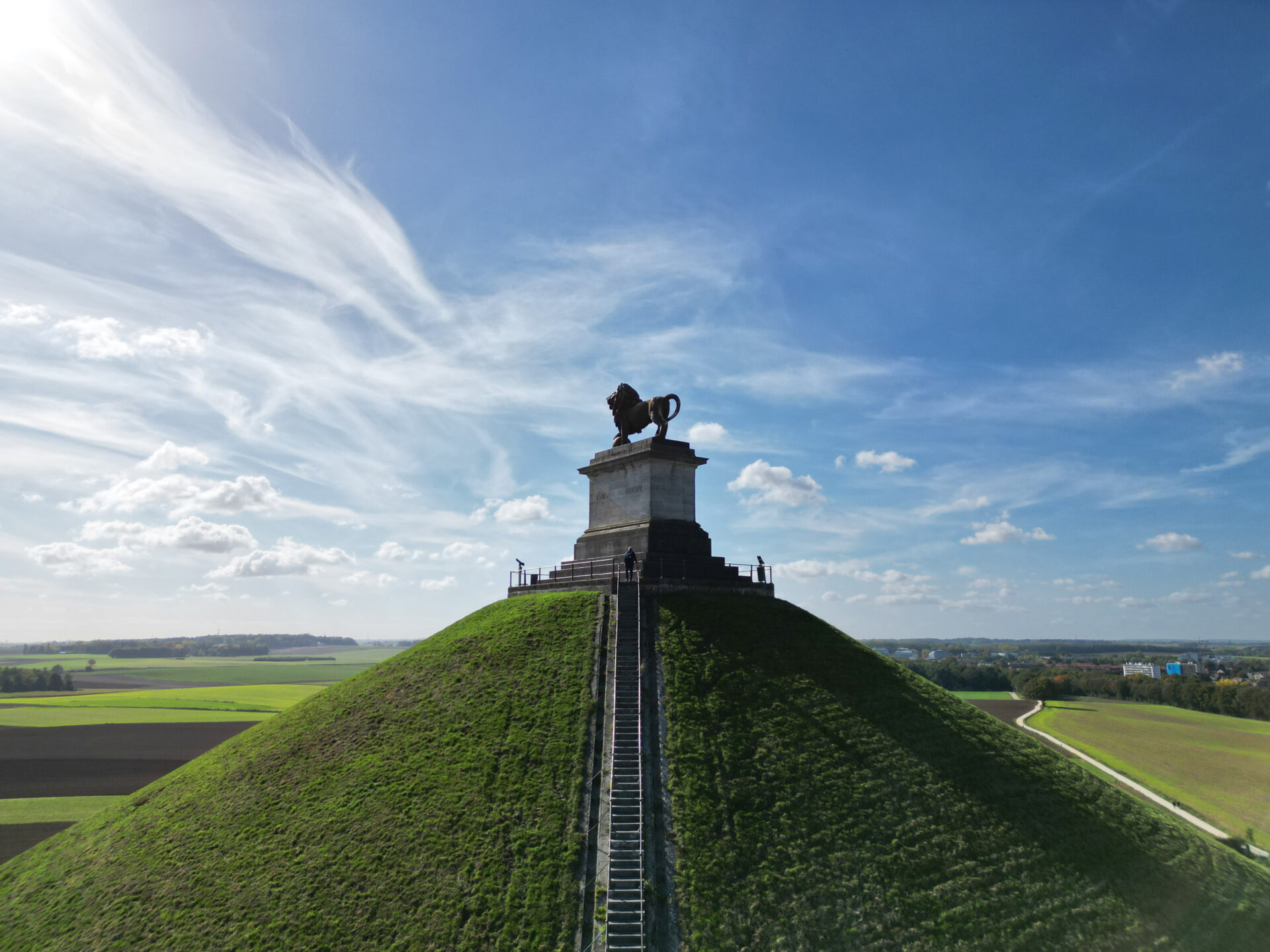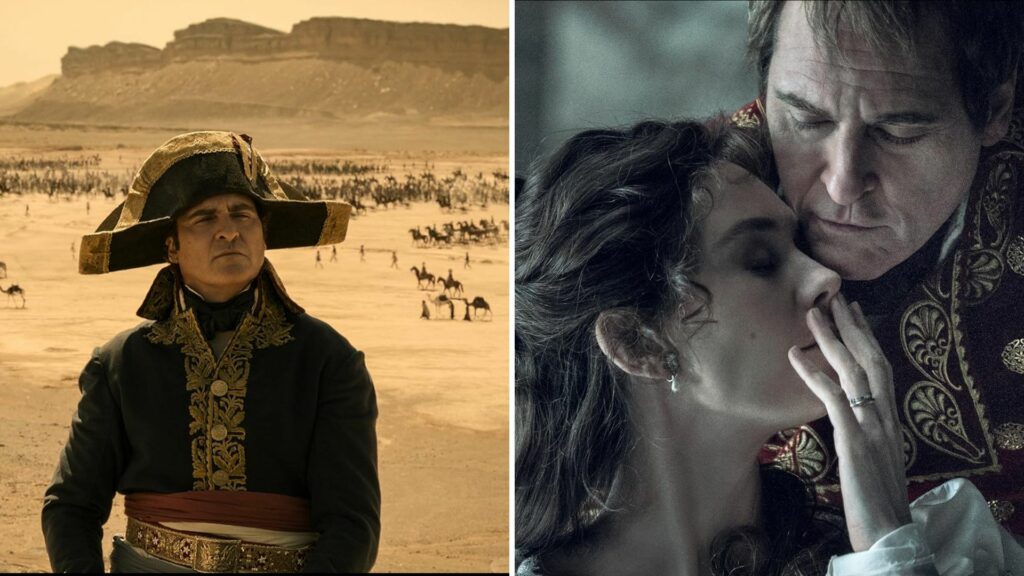Ridley Scott's new blockbuster film Napoleon has generated a wave of debate over the historical accuracy of the film, with the Belgian Napoleonic Association calling some of the changes "shocking".
Amid a mixed reception, Scott has candidly hit back at historical criticisms, most notably in an interview with the Sunday Times on 12 November: "I have issues with historians, I ask: 'Excuse me, mate, were you there? No? Well, shut the f*** up then."
With a figure as well-known in Europe as Napoleon, Ridley Scott’s new film was always going to face intense scrutiny from historians. The fact the director is British was always going to rile up some parts of the Francophone world, but Scott gets much more creative in his artistic depiction of Napoleon.
"From the point of view of scrupulous respect for history, the film is indeed debatable," the President of the Belgian Napoleonic Association, Alain Martin, told The Brussels Times.
When asked about some of the more egregious historical inaccuracies, Martin lists, among many others, Napoleon’s bombing of the Pyramids, his presence at the execution of Marie-Antoinette ("in court dress!"), as well as the fictitious meeting between Wellington and Napoleon.
Love from Egypt to Elba
The figure of Josephine, Napoleon’s first wife, also takes centre stage in the film, with Scott heavily focussing on the French Emperor’s relationship with his lover. But here too, Martin notes more inaccuracies.
Napoleon did not desert his army in Egypt for love, nor did he return from exile in Elba for the same reason, as "Josephine had been dead for a year," Martin says. He also did not publicly slap her after their divorce.

Napoleon and Josephine painted by Harold Hume Piffard (1867 - 1938). Private collection
While Martin appreciates the director's freedom to use shortcuts and his artistic licence to convey his interpretation of the character, he says that the main problem with a figure like Napoleon is that "some facts are so well known that changing them can be shocking."
Martin believes the film is drawn from Ridley Scott’s personal vision of Napoleon, even if the film has been marketed as a biopic of Napoleon, or in other words, a historical film.
It isn’t all negative – the battle scenes and costumes have generally been reviewed as impressive, something Martin agrees with, praising "the great accuracy with which the environment of the period has been recreated, particularly the uniforms."
However, for Martin the historical detail falls short once again over inflated death tolls from the Napoleonic Wars, where Ridley Scott push onto the viewer his own understanding of Napoleon – a bloody despot.
Like Hitler and Stalin?
One of the more controversial aspects of film, was once again was ignited by comments of the film’s director. Ridley Scott was able to infuriate both French and non-French historians when he compared Napoleon to Hitler and Stalin in a promotional interview for British film magazine Empire.
"Comparing Napoleon to Hitler and Stalin makes no sense historically," Martin replies. While he can see how the legend of Napoleon is often viewed from the point of view of his authoritarianism, high war death tolls and the infamous invasion of Russia, "nothing connects these men" in terms of doctrines, power, conquests.

Credit: Sony Pictures
"Napoleon wanted to establish a legally egalitarian world based on merit without any racial connotations and even less for it to be genocidal," Martin said on Napoleon’s political doctrine. "The causes of wars between the monarchical powers at the beginning of the 19th century had nothing to do with the search for the racial reorganisation of the German population."
When it came to power, Martin acknowledges Napoleon's regime was certainly authoritarian and based on the surveillance of public opinion through a very active police force, but he rejects the notion it was police terror, and says that the number of political prisoners was very limited.
According to Martin, between 1809 and 1812, there were only 250 political prisoners and approximately 500 prisoners arbitrarily detained as a danger to public order. The main punishment was usually removal from Paris or house arrest. "This is a far cry from the Gestapo, the Guépéou or the KGB, from punitive justice and the executions and massacres ordered by the German and Russian dictator," Martin said.
"While the authoritarian nature of Napoleon’s regime is undisputed," he continues, "historians are still debating the notion of dictatorship, or even military dictatorship."
Napoleon's army, although it enjoyed a privileged status within the State, never played a political role from 1800 to 1814. The regime was a civilian one, which Martin believes sets it aside from ideological totalitarianism of Hitler and Stalin.
Napoleon's legacy
Over 200 years after the Battle of Waterloo, the question of Napoleon’s legacy still remains highly polarising among historians.
While his warmongering is often cited as having brought about the death of six million Europeans, other historians contradict this figure, and counteract this viewpoint by saying it ignores the numerous coalitions that intended to destroy the ideals of the French Revolution.

Credit: Domaine de la bataille de Waterloo / Belga
The Napoleonic Code is widely seen as having influenced the law of many of the countries formed during and after the Napoleonic Wars – stretching as far as Latin America and the Middle East. It was also maintained in formerly conquered countries, including Belgium.
For the Belgian Napoleonic Association, the issue of the French emperor's legacy is what they disagreed most with Scott’s vision and historical comparisons. "Napoleon laid the foundations of a society that is still very much present in France and in enemy countries at the time. Of course, this legacy, a precursor in its time, has had to and must evolve," said Martin.
While the limitations are obvious, Martin continued, the "positive contribution to the construction of our operating models over the following two centuries is undeniable. And neither Stalin nor Hitler can claim to have done so."
For Martin, Ridley Scott’s Napoleon feels "incomplete", as it largely ignores all the political and geopolitical components of his story. The issue of legacy in the film betrays Ridley Scott’s own vision of Napoleon, but in the age of information and disinformation, historical accuracy is always welcome.

